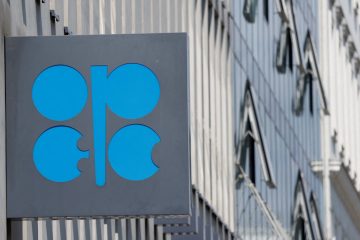OPEC+ extend production cuts to boost oil prices

OPEC+ has reached an agreement to extend production cuts in an effort to bolster oil prices. In an effort to stabilize oil prices, OPEC+ has reached a preliminary agreement to extend production cuts until the end of the year. This move comes as leading producers within the group are gradually moving closer to a deal to reduce output until 2025.
On the same day, Saudi Arabia, the leader of the group, initiated a massive sale of shares in its national oil company, which is expected to generate billions of dollars to support the kingdom’s economic transformation.
The Organization of the Petroleum Exporting Countries and its allies, collectively known as OPEC+, have decided to extend their existing production cuts until the end of 2024, according to delegates familiar with the matter.
According to the delegates, a group of top producers is in the process of finalizing a deal to extend voluntary cuts into 2025. These cuts currently amount to around 2.2 million barrels a day. The voluntary cuts, scheduled to conclude in late 2024, involve a reduction in production of one million barrels per day by Saudi Arabia, the leading producer. These cuts were initially put into effect in July of the previous year.
The restrictions are intended to support prices and prevent a worldwide surplus in a situation where there is increasing production from nonmember producers, especially the U.S., and worries about demand due to high interest rates and inflation.
The current price of Brent crude, the international oil benchmark, is approximately $83 per barrel. This is still below its highest point for the year, which was $91.17 on April 5. Meanwhile, the U.S. oil gauge, West Texas Intermediate, is currently priced at $79 per barrel. Last week, both benchmarks made a slight recovery due to market expectations of OPEC+ cuts and increased tensions in the Middle East. However, they were unable to gain significant momentum.
In a move that mirrors the strategies of economists, Saudi Arabia initiated the sale of less than 1% in state-run oil giant Aramco on Sunday. This offering has the potential to raise nearly $12 billion, building upon the impressive $25.6 billion generated during its initial public listing in 2019. According to market watchers, the kingdom is relying on oil prices in the high $90s to fund its ambitious megaprojects, which include a multibillion-dollar city in the desert and a global airline.
Delegates have reported that Riyadh has expressed concern about traders on Wall Street who are potentially preparing to sell off oil futures, which could lead to a decrease in prices.
According to futures-trading positions, it is anticipated that WTI will be priced at $73 per barrel in a year, reflecting a decrease of over 5% from its current levels. In April, money managers in New York significantly reduced their net long positions in WTI, the primary U.S. futures oil contract, by 20.6%. At the same time, they significantly increased their short positions by 97.5%, as reported by the U.S. Commodity Futures Trading Commission.
Further extension of the cuts agreed on Sunday has the potential to create a supply deficit in global oil markets, which could result in an increase in prices. According to a report released last month, the demand for OPEC+ crude is projected to rise by 800,000 barrels per day next year.
The lack of adherence to agreed curbs has been a source of disagreement between Saudi Arabia and other leading producers. In April, Russia, Iraq, and Kazakhstan exceeded their production quotas by 200,000 barrels a day, 240,000 barrels a day, and 72,000 barrels a day, as reported by S&P Global’s commodities-data service Platts.
The OPEC meeting, typically held in Vienna, took place in Riyadh this time, with several important oil ministers from the alliance in attendance. This change of plans came after Saudi Arabia decided against conducting the meeting solely online. Other producers participated remotely, just as they did in November when the meeting was postponed by four days due to disagreements over production.









